Dermott Hayes's Blog: Postcard from a Pigeon, page 67
June 16, 2016
Starman: Life on TrappistOne #7 Rebirth
#WQWWC – Writer’s Quote Wednesday Writing Challenge – “Rebirth”

Are these the ‘golden ones’? Abraham wonders. Surely not, but then, what should he expect? He doesn’t know, that’s the simple answer to that. He has no points of reference or memory that can answer the half formulated questions now crowding his brain.
Without noticing, Aladdin Sane is standing by his side. He can smell him. This is another new experience. All Units smell the same or this is the first time he has become conscious of a Unit smelling different to himself. What does it mean? How can he describe it?
“You are no different to us,” he hears him say. Then, sweet, he thinks like the vanilla fragrance in a custard dessert, that’s it.
“Each of us was raised through the life stages; WombHome, Init, FormU and ReAs,” Aladdin Sane explains, “and each of us, like you, found a chink that sparked a question.”
Abraham listens, struggling to comprehend what was being said, that there were others, like himself, who ask questions. How can this be? Are there no QuantumBot controls? Surely, they’ve been detected by psychImp, their collective difference causing disturbance in the GrUnCo?
Aladdin Sane was examining him, intently. Abraham could sense the depth of his gaze, with those green eyes, as though he was looking and could see, deep inside him.
“Questions beget more questions,” Aladdin Sane tells him, increasing his alarm, as though this odd, green eyed Unit was accessing his InfoTab and could read, even control, his psychImps.
“This entire chamber,” Sane explains, encompassing the entire space with a sweeping gesture, “is lined with graphene, the same ‘alien’ substance you recovered from the Crater of Density and used to avoid ReAs. Nothing said or thought in this space is recorded by PsychImp or causes any disturbance in the GrUnCo.”
“You, on the other hand, have raised alarms,” he says, “the next ReAs is less than one moon away. While you work in the Crater, your PsychImps have been beyond detection. Unfortunately, this has not been so from the CraterProx dwelling.”
Abraham’s fear was palpable, there was a sour taste in his mouth. It was dry. His skin excretes. Aladdin Sane continues, “there is no cause for alarm. The don’t do alarm but steps will be taken to test you, at the next ReAs and you must be prepared.”
“P-p-prepared?”, Abraham blurts, conscious now that Sane hasn’t answered his original question, about the ‘adventure’ he spoke of. What is this ‘adventure’? How was he a threat to it? And what was its intention?
Aladdin Sane is smiling at him now, shaking his head, gently, side to side. Abraham closes his eyes and opens them, focussing on the green eyed Unit, thinking for a split second the fragrant Sane lacked clarity, as though, well, he wasn’t sure but there was something. Maybe it’s just the fabric he wears, he thinks, that fluid, shifting pattern and colours. Now Sane speaks, again.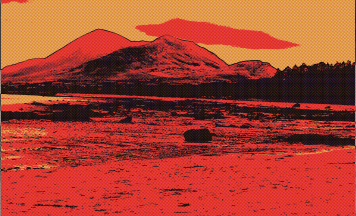
“There will be time to address and answer your questions but now, you must trust us,” he says, “you will be re-born, like new from WombHome, through InIt and FormU, so that, when you present for ReAs, you will go through with it.”
Abraham doesn’t like what he’s hearing. They want him to ReAssemble? Is that what they’re asking? But why? Is this some trick, a ploy by QuantumBot to engineer his re-assimilation, without question or dissent? He looks around for an exit route.
Once more, Sane anticipates his apprehension. “When we found our question,” that same sweeping gesture to indicate his companions, who, for all this time have sat in their semi-circle, observing their exchange, without comment or interference, “we discovered we were, well, different, for want of a better word. Each of us has a genetic distinction, a mutation from the UnitNorm, that puts us outside QuantumBot’s parameters of manipulation or control. We exist but they are not aware of our existence.”
This is way beyond my ability to understand, Abraham is thinking. They exist but they don’t exist because they are somehow, different. That’s what he’s saying but what does it mean?
His own existence has never been something he has considered. Or questioned. Every Unit is a Unit and every Unit has a function. Become a Unit, perform your function; that was InIt and FormU. Now he was being asked to return to that same treadmill from which, since he first encountered the Starman’s Tabernacle in the Crater of Density, he has already stepped so far from UnitNorm as to feel, alien. Why? he tried to figure and what would become of him, then?
“Rebirth,” Aladdin Sane’s silky voice, again, at his elbow, undetected, whispered, “you’re unlike us, too, I should explain, since you found your own path to disassembly with a question, yes, but without the genetic distortion that hides our existence,” he explains, as Abraham, concentrating, struggles to stay with him, “this mutation is both an advantage and a disadvantage to us. We have removed ourselves from UnitNorm and the GrUnCo and can never return. You, on the other hand, although unofficially outside, can return. You can work for us, from within. Will you join our adventure?”
There it is again, Abraham’s thinking and this time, I need an answer.
But by now, the seven, the Diamond Dogs, have arisen and assembled themselves in a loose half circle around Aladdin Sane, and then, together, in a ghostly harmony, they begin to sing,
And from these tired eyes
We Rascalize
And find our way through
Because we know exactly where we want to go too
All aboard the adventure
All aboard our adventure
TO BE CONTINUED
CATCH UP
TRAP1 https://dermotthayes.com/2016/05/05/starman-life-on-trappistone-2/
TRAP2 https://dermotthayes.com/2016/05/12/starman-life-on-trappistone-2-2/
TRAP3 https://dermotthayes.com/2016/05/20/starman-life-on-trappistone-3-obsession/
TRAP4 https://dermotthayes.com/2016/05/26/starman-life-on-trappistone-4/
TRAP5 https://dermotthayes.com/2016/06/02/starman-life-on-trappistone-5-inspiration/
TRAP6 https://dermotthayes.com/2016/06/12/starmanlife-on-trappistone6-adventure/
Rascalize by The Rascals
Writer(s): Miles Kane
Copyright: B Unique Music Limited


June 14, 2016
Signs of the Time #7
Because of recent inclement weather – well, we did have two weeks of sunshine – here are some fun pub signs

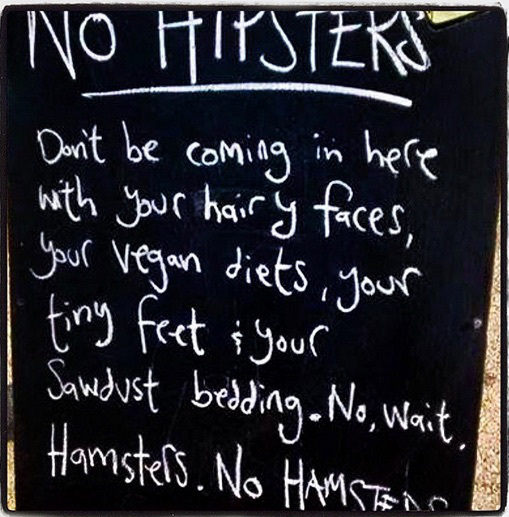


Dying to Believe
Last night, after reading Elan Mudrow’s wonderful poem, Pulse of Hate (https://tricksterchase.com/2016/06/13/pulse-of-hate/) I was reminded of a song I wrote once for a friend of mine, (who died before the music was finished, but that’s another story) called Dying to Believe. So, as people die, daily, in the name of hate and religion, here it is, a song about the horrifying irony of religious beliefs that would have us die to believe.

Dying to believe
Bad news woke me this morning
on an FM radio show
five children blown up
on their way to school
for the love of God
for the God they love
Shake me to my knees
Am I ready to believe?
People dying in the streets
Some are waiting for the end
There are no surprises
it’s all between the sheets
If you have faith in anything
You’re dying to believe
Kill me with faith
Beat me up with the truth
Lay me out with the evidence
I m dying to believe
As sure as day follows night
Where there’s a will
There’s a fight
Let Allah, Buddha, Jesus and Jehovah
Bear witness
We’ll all die
Unless there’s someone there to cry
Kill me with faith
Beat me up with the truth
Lay me out with the evidence
Im dying to believe
You don’t need bombs or guns
Write it on a blank page
Ignite it with religion
Watch it burn with rage
I wanna die to say something
I wanna live for the dead
I wanna make the dead live
While you
Kill me with faith,
Beat me up with the truth
Lay me out with the evidence
I’m dying to believe
If there’s something to believe in
Then there’s hope in our hearts
But when dying is believing
We don’t know where to start
I believe in summer days
When we can sit in the sun
I believe in cold winter nights
When our home fires burn
I was an island alone
sitting on a fence
there were tears in the alleys
pain in the shanty towns
but I was a nomad in the desert
until you taught me a lesson
’bout how living is loving,
and there’s no crying ’bout dying
Just fear ’bout caring
Point me in the right direction
Tell me what I should do
It should be easy to convince me
‘cos I’m dying to believe in you
Kill me with faith
Beat me up with the truth
Lay me out with the evidence
I’m dying to believe
Lyrics: Dermott Hayes©


Practicing what I Blog, revisited.
Following useful input and suggestions from Tanya Cliff, Tamarasuz and PaminatOr, here is The Curious Incident, henceforth renamed, thanks to Tanya,
CURIOUS
“Is there any point to which you would wish to draw my attention?’
‘To the curious incident of the dog in the night-time.’
‘The dog did nothing in the night-time.’
‘That was the curious incident,’ remarked Sherlock Holmes.” ― Arthur Conan Doyle, Silver Blaze
Waking up somewhere you don’t recognise is not good. Waking up beside a complete stranger doesn’t augur well, either. And if they’re dead, that’s not a mystery, it’s a disaster.
My mysteries usually occur in the dark end of a dimly lit alley, the air redolent of scuzzy, discarded condoms, beer puke, urine and faeces, the graffitied walls dripping with a primeval slime.
This was a high class hotel suite. The sheets made the crinkly noise of Egyptian cotton and the complimentary pillow chocolate that was stuck to my face, was at least 70% high grade cocoa. Where the fuck am I?
The corpse beside me was naked. Checking her pulse was out of the question. Her throat was slit from ear to ear and she was the colour of an old dish cloth. It was a big bed so little of the blood bath had oozed as far as me. Of course, I thought, it helped that she was surrounded by bloody teddy bears, maybe two dozen of them.
They weren’t just ‘bloody’, like splattered, no, they were oozing blood. It was like a teddy bear massacre. And these were just my waking moments, that fuzzy twilight where you can see the light, in the distance, but all your other senses are still playing catch up.
Because just about then, I began to smell the blood and forgot about the teddy bears. It smelt like a slaughterhouse.What the fuck was I doing here? Cold fear grasped me.
The fog lifted and I leaped out of that bed, stark naked, ready to run, as far and as fast as my feet would carry me. And that wasn’t too far because my clothes were there, by the side of the bed, folded neatly over my Zimmer frame walker.
It occurred to me I hadn’t moved that fast in 20 years or more. And I’m naked, Christ, I didn’t even like looking at my own body, anymore; scarred, pitted and crooked as it was and who, I thought, is the naked stiff?
Suddenly, I needed to pee. I looked around for my socks that were stuffed, neatly, into my Drew Jimmy’s orthopedic shoes. I grabbed my boxers, too and sat on the Ottoman at the end of the bed to put them on.
That done, I hobbled to the bathroom behind the bed. In there, I lifted the seat off the toilet and waited. Jesus, I thought, now with the stage fright? The bathroom looked untouched. The toilet roll had that triangular fold like it was a dinner napkin, for God’s sake.
My thoughts were jumping, slipping around, like mercury on a slab of marble.It occurred to me I was still standing at the toilet, holding my dick. Still nothing, the sluice is open but there’s no flow. Fuck it, I have to get out of here.
I gave up trying to pee and paused, to unwrap a small tablet of soap but when I turned on the tap, it wasn’t the only faucet to let fly. Christ, I cursed, as a trickle of pee ran down my leg, soaking my boxers, before I could get it out again to point it at the pan. Of course, I’d put the lid back, so now there was pee on my feet and the floor and by the time I got the lid up, again, it stopped.
That was it. I went back inside and got dressed in a hurry, well, as quickly as my rickety 78 year old frame could manage. Composed and leaning on my zimmer, my bed companion, deceased, I paused, long enough to look her over and wonder again, what?
She was a real beauty, maybe 55, 60, or thereabouts. Blonde, if bottle enhanced, and nice jugs, too, though just a little too pert, given wear and tear. In fact, they defied gravity, sliding neither to the left or right, nor flattening like the worn out dugs of the last woman I bedded and that was ten years ago.
Before I left, I took a hand towel from the bathroom and mopped the pee from the floor. Then I took another and wiped down any obvious surfaces like the bathroom door handle and around the bed, on my side. Then I threw both towels in the bath and soaked them, quickly, by turning on the bath faucet.
Satisfied, I left, hobbling down a long corridor where I found an elevator. That tune, An Englishman in New York, was playing and I pressed the button for the lobby. There was no-one else in the elevator so I hummed along with Sting until the door opened and I shuffled out in to the busy foyer. I gazed around to get my bearings.
“Dad, Dad, there you are…where, in God’s name have you been?”
Jaysus, I thought, who’s this?
There was a woman, a very angry woman, 30-ish, fashionably dressed, slightly plump, red faced and flustered, heading straight at me, shouting and gesticulating. What’s going on?
She tried to grab me by the elbow but I pulled back and, I have to say, cowered. She was ferocious.
“Every person in this hotel has been looking for you,” she scolded, “The cops have been trying to find you. Jesus, what are we going to do with you?”
I looked sheepish and contrite, but I said nothing. I kept my eyes averted.
Happily, at this point, someone else intervened, a member of staff, I imagined, if his dark lounge suit, ear piece and walkie talkie were any indication. I continued to cower.
“Excuse me, Madam, do you know this gentleman?’ he asked, insinuating himself between me and the angry woman.
“What?’ she asked him, clearly agitated by his interruption. I was just happy he was now in her sights.
“What?” she asked, again, only louder. “Are you serious?”
The man in the suit made a shuffling move, looked at his feet and scratched the lobe of his right ear. He rested his free hand on his hip.
“That is my father. Who are you? We’re guests here and my father’s been missing for close on half a day. I can’t believe you’re harassing me like this..”
I tried to slip away in the confusion.
“Where do you think you’re going?”
“Oh, oh.”
She had me by the elbow, again.
“Don’t ever wander off like that, again. We’ve been going crazy, we thought you were dead or mugged or something.”


June 13, 2016
Practice what I Blog
I was surprised, last week, to receive two emails from a Canadian writing festival, one, accepting my story Starman: Life on TrappistOne and the other, rejecting another story I wrote around the same time, The Curious Incident.
Both stories were written in response to Ronovan’s and Silverthreading’s Writer’s Quote Wednesday Writing Challenge. The story accepted, Starman, has become, for all intents and purposes, an episodic serial, a sort of graphic novel in waiting, spurred, in part, by the weekly Wednesday prompt.
It began, as blog responses to this weekly prompt do, with a quote; the first, from Starman, the David Bowie song of the same name, while the other, The Curious Incident was inspired by Sir Arthur Conan Doyle’s Sherlock Holmes’ story of the same name.
Happily, the Canadian festival in question, has provided exhaustive and very constructive critique. So, let’s go with the rejection, first. I intend to republish the original story, here and then, the critique of that story, as provided. Then, I hope to initiate some discussion, regarding both story and critique and finally, edit the story in accordance with that feedback. The end result, I hope, will be a re-edited story I hope I can recirculate but also, and here’s the left-field angle, a practical exercise in the use and value of criticism.
Here is the original story. The prompt, that week, aside from choosing a suitable quote, was ‘mystery.’

The Curious Incident
“Is there any point to which you would wish to draw my attention?’
‘To the curious incident of the dog in the night-time.’
‘The dog did nothing in the night-time.’
‘That was the curious incident,’ remarked Sherlock Holmes.”
― Arthur Conan Doyle, Silver Blaze
Waking up somewhere you don’t recognise is not good. Waking up beside a complete stranger doesn’t augur well, either. And if they’re dead, that’s not a mystery, it’s a disaster.
My mysteries usually occur in the dark end of a dimly lit alley, the air redolent of scuzzy, discarded condoms, beer puke, urine and faeces, the graffitied walls dripping with a primeval slime.
This was a high class hotel suite. The sheets made the crinkly noise of Egyptian cotton and the complimentary pillow chocolate that was stuck to my face, was at least 70% high grade cocoa.
The corpse beside me was naked. Checking her pulse was out of the question. Her throat was slit from ear to ear and she was the colour of an old dish cloth. It was a big bed so little of the blood bath had oozed as far as me. Of course, I thought, it helped that she was surrounded by bloody teddy bears, maybe two dozen of them.
They weren’t just ‘bloody’, like splattered, no, they were oozing blood. It was like a teddy bear massacre. And these were just my waking moments, that fuzzy twilight where you can see the light, in the distance, but all your other senses are still playing catch up. Because just about then, I began to smell the blood and forgot about the teddy bears. It smelt like a slaughterhouse.
Then the fog lifted and I leaped out of that bed, stark naked, ready to run, as far and as fast as my feet would carry me. And that wasn’t too far because my clothes were there, by the side of the bed, folded neatly over my Zimmer frame walker. Then it occurred to me I hadn’t moved that fast in 20 years or more. And I’m naked, Christ, I didn’t even like looking at my own body, anymore; scarred, pitted and crooked as it was. Suddenly, I needed to pee. I looked around for my socks that were stuffed, neatly, into my Drew Jimmy’s orthopedic shoes. I grabbed my boxers, too and sat on the Ottoman at the end of the bed to put them on.
That done, I hobbled to the bathroom behind the bed. In there, I lifted the seat off the toilet and waited. Jesus, I thought, now with the stage fright? The bathroom looked untouched. The toilet roll had that triangular fold like it was a dinner napkin, for God’s sake. What the fuck was I doing here? Where the fuck am I? and who, the fuck, is the stiff in the bed next door? Still nothing, the sluice is open but there’s no flow. Fuck it, I have to get out of here.
I gave up trying to pee and paused, to unwrap a small tablet of soap but when I turned on the tap, it wasn’t the only faucet to let fly. Christ, I cursed, as a trickle of pee ran down my leg, soaking my boxers, before I could get it out again to point it at the pan. Of course, I’d put the lid back, so now there was pee on my feet and the floor and by the time I got the lid up, again, it stopped.
That was it. I went back inside and got dressed in a hurry, well, as quickly as my rickety 78 year old frame could manage. Composed and leaning on my zimmer, my bed companion, deceased, I paused, long enough to look her over. She was a real beauty, maybe 55, 60, or thereabouts. Blonde, if bottle enhanced, and nice jugs, too, though just a little too pert, given wear and tear. In fact, they defied gravity, sliding neither to the left or right, nor flattening like the worn out dugs of the last woman I bedded and that was ten years ago.
Before I left, I took a hand towel from the bathroom and mopped the pee from the floor. Then I took another and wiped down any obvious surfaces like the bathroom door handle and around the bed, on my side. Then I threw both towels in the bath and soaked them, quickly, by turning on the bath faucet.
Satisfied, I left, hobbling down a long corridor where I found an elevator. That tune, An Englishman in New York, was playing and I pressed the button for the lobby. There was no-one else in the elevator so I hummed along with Sting until the door opened and I shuffled out in to the busy foyer. I gazed around to get my bearings.
“Dad, Dad, there you are…where, in God’s name have you been? Every person in this hotel has been looking for you. The cops have been trying to find you. Jesus, what are we going to do with you? Don’t ever wander off like that, again. We’ve been going crazy, we thought you were dead or mugged or something.”
I looked sheepish and contrite, but I said nothing.
the end
This is the critique that was offered. It is exhaustive and much longer than the story itself. I would appreciate, if you’ve come this far, that you read the critique and then, perhaps, offer your own advice or comments.
THE CURIOUS INCIDENT
Waking up in a hotel room next to the bloody corpse of a woman in her late fifties, a 78 year old gentleman tries to get his bearings and piece together to circumstances that led him to such a situation. His knee-jerk reaction, once clothed, however, is instead to service his body by urinating, allowing him time to consider the implications of the dead woman. Leaving the corpse in the room, untouched, despite his care at mopping up his own pee, the old man saunters down the hotel corridor, sings along to an Englishman in New York in elevator, before encountering his child who questions his whereabouts from the night before. He man remains tight lipped.
The Curious Incident subverts expectation of dealing with a high pressure situation through the protagonist’s curious behaviour. The stakes are apparent from the off, but the greater surprises come from his peculiar gut reactions. Framing us, the reader, in his perspective gives us an insight into the sporadic actions of the man, allowing his empathetic responses like disgust and confusion to balance nicely against the mundanity of his need to urinate and clothe himself. It’s also interesting approaching the story from the angle of a Sherlock Holmes investigation, as the title and initial quote draws some engaging contrasts between the methodology of Sherlock and this old man’s thought process. There’s certainly some strong visual storytelling at work here too, describing the frailty of his body with sharp clarity to the point where the narrative feels almost sensory.
There are, however, some points for improvement within this short story. Currently, it’s a little unclear what we’re supposed to take from this short – a little ambiguity as to whether the man was or was not responsible is good for leaving the reader in a place of intrigue, but the ending is so abrupt here than we never really get enough of a sense either way for the mystery to be compelling. Even the slightest, most subtle hint of his true intent, will re-contextualize all that has come before, prompting multiple read-throughs for the sake of interest, rather than confusion.
The story is set up to be a mystery that needs solving, and yet by the second half it almost feels as if no more effort is being made to solve it. The man’s reactions are traded in for his surface level actions, without enough of a subtext for us to continue getting the measure of him.
Further confusing the characterization is leery, subjective gaze upon the dead woman – some might think this enough to suggest he had a hand in her death, but it only really comes off as muddled when he’s made no allusions towards her beauty upon first seeing her. In short, he’s shifting too much, rather than us organically peeling back the layers of his character.
Furthermore, his son/daughter who appears in the foyer (again, a lack of description of this character makes them feel intangible by comparison with the vivid imagery of the opening) doesn’t really add anything to narrative – their questioning doesn’t really reveal much about the old man, leading to the abrupt ending on a fairly weak reaction. Equally, all 8 clauses of the son/daughter’s questioning are just repeated variations of the same point. We get after one or two lines that they were worried what had happened to him, so leave it at that, rather than over-labour the dialogue. Less is always more in that field of storytelling.
With regards to your writing style, as previously mentioned, there are some striking moments of vivid imagery, blended nicely with the confused personality of the man. There’s room for drawing more direct contrasts in places, such as between the alley and the hotel, possibly even pairing each point of interest within both locations as a clearer dark/light reflection. More work on maintaining that standard throughout the entire story (everything from the peeing onwards feels very “surface”, and a little redundant), as well as keeping his emotional thought process apparent will help sustain our investment in the story. Directly asking the active questions is nice (although be wary of the grammar here, as a question counts as a sentence in and of itself), but asking them all at once does lessen each individual question’s impact – spacing them out allows each segment of action to have a clearer intent behind it (e.g. “What the fuck was I doing here?” followed by him searching for the answer, etc.). Finally, be wary of repeating some terms, like “blood” and its variations, too frequently, as this can break the strong flow of your storytelling.
Overall, The Curious Incident places us in a vivid, engaging scenario, with an interesting character to follow. However, further work is needed in defining the intent and characterization of this man, as well as making the narrative feel like a complete story, rather than a chapter of something bigger, whilst tidying up some of the writing flairs in places. There’s potential here – just really evaluate what you want a reader to take from this story.


Disbelief, shock, horror, disgust
Last night, I watched The Guardian columnist, Owen Jones walk off a SKY News program, after expressing his disbelief and horror at the refusal of the show’s presenter and fellow guest to acknowledge the homophobic horror of the mass murder in Orlando. I agree with him but, while admiring his restraint, would add shock and disgust. And to all my gay friends, I stand in defiance and solidarity against those who would hate.
Here, below, is a reproduction of his article in today’s The Guardian, explaining his decision to walk out. Its headline speaks for itself,
On Sky News last night, I realised how far some will go to ignore homophobia
Orlando was both a terrorist attack and a homophobic attack on LGBT people. It was both the worst mass shooting in US history, and the worst targeted mass killing of LGBT people in the western world since the Holocaust. It is possible for an atrocity to be more than one thing at the same time. You are not compelled to select one option or the other. Life – with both its horrors and its joys – is incredibly complicated, and we have a rich language able to capture its complexities.
I am reluctant to dwell too much on my appearance on Sky News last night, because this isn’t about me, so let’s just use it as a case study. In sum, I walked off in disgust during a discussion about the massacre: it was an instinctive reaction to an unpleasant and untenable situation. The presenter continually and repeatedly refused to accept that this was an attack on LGBT people. This was an attack “against human beings”, he said, and “the freedom of all people to try to enjoy themselves”. He not only refused to accept it as an attack on LGBT people, but was increasingly agitated that I – as a gay man – would claim it as such.
If a terrorist with a track record of expressing hatred of and disgust at Jewish people had walked into a synagogue and murdered 50 Jewish people, we would rightly describe it as both terrorism and an antisemitic attack. If a Jewish guest on television had tried to describe it as such, it would be disgraceful if they were not only contradicted, but shouted down as they did so. But this is what happened on Sky News with a gay man talking about the mass murder of LGBT people.
This isn’t about LGBT people taking ownership of the pain and anguish. People of all sexual orientations have wept over this massacre, and all communities should unite in grief. It is highly likely that straight people died in the atrocity. When the neo-Nazi terrorist David Copeland detonated a nail bomb in the Admiral Duncan gay pub in 1999, one of the fatalities was a straight pregnant woman, having a drink with her husband and her gay friends. LGBT people are part of the wider community, and LGBT people and their straight friends party together in LGBT venues. But this was a deliberate attack on a LGBT venue and LGBT people. According to Omar Mateen’s father, the reportedly Islamic State-supporting terrorist had at the sight of two men kissing. His co-workers have described his anti-gay comments. Omar Mateen could have chosen many clubs, full of people laughing and living, but he chose a LGBT venue. This was homophobia as well as terrorism. It is not enough to simply condemn violence: we have to understand what it is and why it happened.
It wasn’t only Sky News at fault. In the New York Times’ original reporting, it didn’t even point out that a gay club had been targeted. The Daily Mail didn’t bother to put the atrocity – the worst terrorist attack on US soil since 9/11 – on its front page, instead opting to stir up xenophobia over Turkish immigrants and publicising an offer of “free pearl and white sapphire earrings”. This is erasure of LGBT people – pure and simple – after their community was horrifically targeted.
LGBT people are varied, and have different experiences: the life experiences of a young working-class gay black woman and a gay white male multi-millionaire CEO are very different. But we all grow up in a society that still treats us as if we are inferior: we have all repeatedly encountered homophobic abuse, the stress of coming out repeatedly, or the fear of holding hands with a partner in public. To imagine LGBT people who may have endured distress and internalised prejudice – just because of who they are – spending their last moments in terror as a homophobic terrorist hunted them down is just unbearable.
Today, the “we only care about LGBT rights if Muslims are involved” brigade are out in force. As a gay man, I am proud to live in a city represented by a Muslim mayor who has faced death threats for supporting and voting for LGBT people to have the same rights as everybody else. The bigots must not be allowed to hijack this atrocity.
Tonight at 7pm in Old Compton Street – in the heart of London’s LGBT community – LGBT people and straight people will link arms in memory of what happened in Orlando. Let it be a show of solidarity – and defiance against those who hate.


Embrace the Criticism and Learn
Two weeks ago, I asked friend, writer and fellow blogger, Tanya Cliff, to take any story of mine and critique it using the criteria she would use to determine, what is a story? https://dermotthayes.com/2016/06/01/what-makes-a-story-guest-writer-tanya-cliff/
I wanted to make a point about the value of criticism and how it is something we should embrace and learn from. To continue that theme, here is my own tuppence worth on the value of criticism and how we should use it to our advantage.
This is, I hope, the beginning of an open ended discussion, so please, feel free to comment and participate.
When you send two stories out and one of them comes back, rejected, do you throw it away and rage against its scorner? Don’t.
Take a long, close look at it. Compare the two; why one was accepted, the other, rejected. Try to find out why one was considered good enough for the publication and why the other was not.
Ask any artist, they rarely remember the good reviews, it’s the bad ones they keep close to their hearts. If they’re sensible, they look upon it with dispassion and detachment (a difficult thing) and learn from it.
Criticism can be harsh and hard to take. Don’t take it personally. Embrace it and learn from it because if you don’t, you’re doing a disservice to yourself.
The problem with criticism is it has two meanings.
In the Oxford English Dictionary (http://www.oxforddictionaries.com/definition/english/criticism), like most other dictionaries, criticism is, first, an expression of disapproval on the basis of perceived faults or mistakes and then, the analysis and judgement of the merits and faults of an artistic and literary work.
I’ve been on both sides of this fence. For most of my adult life, I worked as a freelance journalist, a frequently misunderstood career choice. I wished I had the freedom to choose what I wanted to write about but more often and more pointedly, I wrote about what people wanted to read about.
I also wrote when or where others would not. Why? Because I had to put food on the table for my family. From a very early time in my career, which began as a financial journalist writing share reports and attending corporate AGMs, I was a rock critic. Why? Because I saw a niche in the market and jumped in to fill it. And who said you can’t have fun while you’re working?
Back then, I had ten years behind me as someone who worked on the fringes of the entertainment industry, helping out in school and college shows and occasionally performing, as an actor. I’ve never played a musical instrument or performed, alone, in front of an audience but I was that eager, young fool, front of stage, watching everything, thrilled and enthralled.
So I wrote reviews of rock concerts because newspapers bought them and I got to see some great shows and got paid, too. The first person to question my right to do so was another rock journalist. He said I knew nothing about rock music because I couldn’t play an instrument and had never played in front of an audience.
There were harsh words exchanged but it made me question my right and ability to continue doing what I was doing. Here’s what I concluded. Every potential consumer is a critic, by definition. No-one has to spend five years in a musical conservatory or assembling drum kits and humping guitar amps in Wideass, Minnesota, to know and decide what they like and what they don’t.
On the other hand, an eclectic knowledge and experience of music, performed and recorded, were criteria, I believed, necessary to perform my task. You also needed the facility to communicate and share that information. Now I’d been listening to music since I first heard The Beatles perform their first single on BBC’s Top of the Pops, in 1963.
Winston Churchill said ‘criticism may not be agreeable, but it is necessary.’ He went to say it fulfills the function of pain in the body, ‘it calls attention to an unhealthy state of things.’
All criticism is subjective and that’s an easy way to dismiss it, at its harshest but a good critic must carry the responsibility of his or her task, as seriously as the artist: they must know what they’re talking about.
As a freelance journalist, I relied on being able to read my market to sell my stories. That meant knowing what I was writing about, first, but also, knowing how to communicate and share it. So, as a critic, I was obliged to learn, not just about the artist I might critique but also about who was listening to them and where their work came from.
In other words, I was ‘the man on the Clapham Omnibus’, Joe Soap, Paddy the Punter saying ‘entertain me’ and listening to The Jam’s fervent assertion,
Two lovers kissing masks a scream of midnight
Two lovers missing the tranquility of solitude
Getting a cab and travelling on buses
Reading the grafitti about slashed-seat affairs
I say that’s entertainment
Now, my life as a critic was not confined to rock music. I was also, a literary critic, specialising in historical biographies and crime and science fiction because those were three areas of commercial writing in which I had a personal interest. But beggars can’t be choosers and occasionally, a literary editor would ask me to review something that was outside my usual stream of work.
I remember, on one occasion, getting a new novel, written by a very well known playwright. I thought it was awful; hackneyed, clichéd, unimaginative and frankly, tired. Unfortunately, my review turned out to be the worst review the book received with many of the better known critics choosing to simply ignore the book or write critiques that were ‘mildly indifferent’ to the book’s obvious, I felt, faults.
Five years later, I attended a reception in a theatre where most of this writer’s plays were produced. A statue and plaque, in his honour, were being dedicated and he was there, too. After the speeches, I went up to pay my respects and was rebuffed, to the surprise and embarrassment of the hosts. The playwright refused to shake my hand and reminded me of that critique. It didn’t bother me, I wrote an honest review. He could take it or leave it.

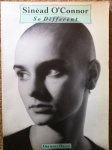
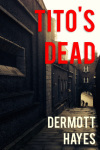
Since then, as a writer, I’ve become more used to rejection and criticism than I ever was as a freelance journalist. But then, the criteria for me then was, if it sells, then it’s right.
Unfortunately, for an artist, such adherence to commercial imperatives, is neither feasible nor acceptable. An artist has a distinctive voice. An artist is also a communicator. The artist’s raison d’être is to communicate with an audience in that distinctive voice so that people can see and interpret the world they live in, from a different perspective.
But that should never exclude an artist from embracing criticism, since criticism can provide them (the artist) with a way to see their work from a different perspective and by so doing, help them learn to communicate better.


June 12, 2016
Starman:Life on TrappistOne#6 Adventure
Writers Quote Wednesday Writing Challenge – “Adventure” #WQWWC

CATCH UP
TRAP1 https://dermotthayes.com/2016/05/05/starman-life-on-trappistone-2/
TRAP2 https://dermotthayes.com/2016/05/12/starman-life-on-trappistone-2-2/
TRAP3 https://dermotthayes.com/2016/05/20/starman-life-on-trappistone-3-obsession/
TRAP4 https://dermotthayes.com/2016/05/26/starman-life-on-trappistone-4/
TRAP5 https://dermotthayes.com/2016/06/02/starman-life-on-trappistone-5-inspiration/
Abraham can’t see. He can hear the voice that welcomes him but the searing heat and illumination from the lights make it impossible for him to look at them. He holds both arms up, against his face, to shield and protect himself. He doesn’t know how to respond. The voice used his number, the number he was given at ReAs. That tells him they know.
“So sorry, Abraham,” the voice says, “we’re used to the light. Someone?”
Abraham hears footsteps approach. He’s aware the light has changed and the attendant heat glare, softened. He lowers his hands, squinting. Colourful spots dance in front of his eyes but he can make out a silhouette approach, arms extended. In greeting, he hopes.
‘You’ve been on our minds,” this Unit he doesn’t recognize is saying to him. The voice is soft but assertive; the face, now he can see it, clear and unlined but it’s the eyes that grab his attention. They are a clear, green colour, almost liquid in texture and remind him of images of oceans in the alien Tablet, vast empty spaces of atmospheric turbulence that once covered more than two thirds of the Earth planet. All Units on TrappistOne have either blue or brown eyes.
“…this is quite an adventure,” the green eyed Unit concludes, just as Abraham begins to realize he’s been speaking and rapt, as he is, in the stranger’s appearance, he’s paid no attention. The Unit stares at him, intently, as though expecting a response. But before Abraham can respond, he continues.
“But where are our manners?” the mild mannered but assertive Unit says, as his left hand takes a firm grip on Abraham’s right elbow, guiding him towards the group of Units seated in a semi-circle, where the green eyed Unit came from, before. With a sweeping gesture of his right hand, the Unit continues, “these, my companions, are the Diamond Dogs and me, well, I’m Aladdin Sane.”
“You look confused, say something.”
Abraham is trying, with difficulty, to take in the revelations of the past ten minutes. It is beyond his powers of comprehension. He knows his mouth hangs open, his eyes feel as though they’re about to pop from their sockets and as his senses struggle to cope with this onslaught, he hears more of the music from the Tablet, playing softly, in the background. His olfactory receptors detect odours beyond his realm of experience.
The seven Units before him, with the exception of the one who calls himself Aladdin Sane, are all dressed in form fitting outfits that appear to change in colour, shade and shape as they move. Aladdin Sane is in an outfit of similar shape and scale, changes colour in response to his gestures and words but its effect is stronger, more intense. Aladdin Sane and the Diamond Dogs were mentioned by the Starman, he knows, but in what context, he can’t remember, or understand. They’re all staring at him, waiting.
“I…I…I am,” he stutters, the sound leaving his mouth as though it was trapped, “confused, I mean,” he continues, “I don’t understand. What adventure?”
A silence follows. Abraham can feel their eyes on him just as he tries his best to avoid them. He wonders what has brought him here and what is to come. It is all, quite literally, beyond his experience.
It is Aladdin Sane who responds first, clapping the palms of his hands together and making a ‘whooping’ noise with his mouth. The others join in.
“We’ve been watching you, Abraham,” he says, “while, like a butterfly in chrysalis, you emerge from ReAs, dis-assembled, I suppose, and then struggle to find a consciousness of your own. And you’ve done this with the primitive remains recovered from the ruins of the Crater of Density…sity.”
Abraham looks up, conscious of the hesitation. For just a split second, does Aladdin Sane exist or is he a trick of the light?, he wonders, what is going on? But Aladdin Sane turns towards him, directly, his form as clear and tangible as his own. He continues.
“Avoiding re-assembly poses its own problems and challenges, however. It gives you scope for memory and a record of sensations and emotions. And then needs, or desires. Before you know it, everyone needs something and feels they deserve it and pretty soon, no-one’s thinking of anyone else and nothing gets done and then it all falls apart.”
Abraham struggles to keep up with Aladdin Sane. Sure, he was experiencing new things, memory and emotions and how to understand them. Sure, he knew his meagre learning created a need for more, but what is wrong with that.
“What falls apart?” he blurts.
Aladdin Sane looks at him, a long time. Those clear, green eyes penetrate his being.
“The adventure, Of course,” he says.
Abraham remembers the Starman’s song and remembering it confuses him even more.
Who’ll love Aladdin Sane
Millions weep a fountain,
just in case of sunrise


June 8, 2016
Do you want to see paradise?
‘Do you want to see Paradise?’ she asked me. What could I say, but, of course.
Getting away for a few days, out of the daily routine, sunshine in my face, sand in my toes, the smell of the ocean and mountain heather and an Irish wedding in the west of Ireland, it was an embarrassment of riches and attractions.
And after three days and nights of that, well, she asked me the question; do I want to see Paradise?
Achill Island is attached to Ireland by a sound and a short bridge. It is covered in rhododendrons at this time of the year so it was like driving through a purple forest, along the narrow, winding roads of the island. But where we were going, at the far end of the island, there was a mountain and beyond that mountain, by a long winding road that climbs and then descends, is the beach, Keem beach or, as Maria said to me, Paradise.
We started our day on Old Head beach, another beautiful spot, overlooked by Croagh Patrick.


Then we took off on the road to Achill, the green route on the map that becomes pink, when it reaches the island.

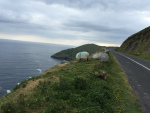
There wasn’t much traffic but quite a few sheep, well, this is their territory and they have the run of the place. For this reason you have to be careful when you’re driving along a cliff-side blacktop, over the side of a mountain.
But Maria promised Paradise and, well, she was right.

And then this.

And this.

And, finally, this.



Signs of the Time #6
Postcard from a Pigeon
- Dermott Hayes's profile
- 4 followers







